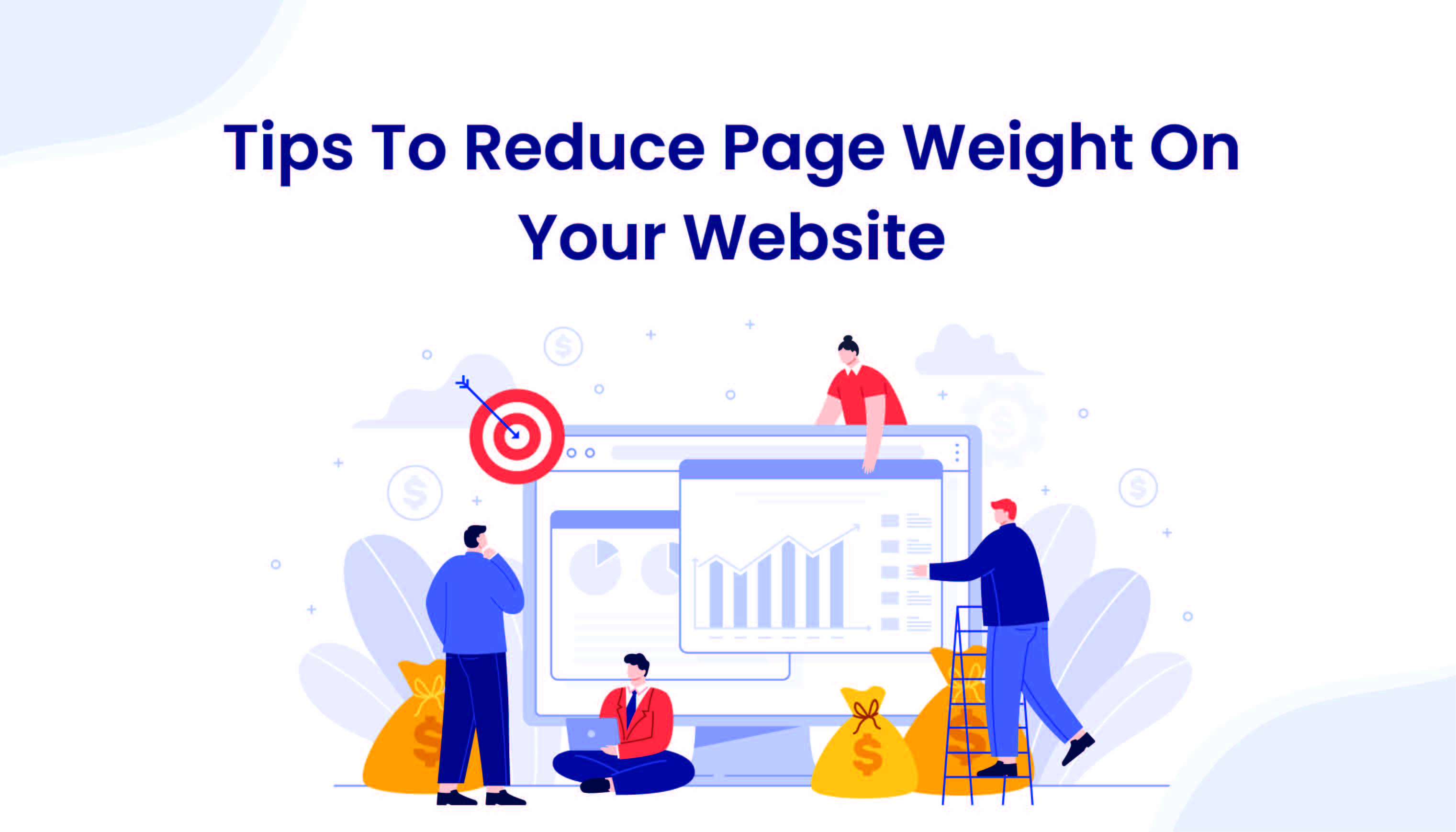Page weight has a direct connection with the page loading speed. When it comes to page weight, size matters a lot. When the size of the page is small, then it loads quickly. Page Weight denotes the overall size of a specific web page, including all of the files that are used to create the page: Images, scripts, style sheets, HTML documents, and other multimedia. Page weight is also used as a website metric to track page time, time to first byte, uptime, HTTP requests, and more. To maintain a healthy page rank, your business needs to deliver a fast and optimized web experience across all devices. In order to get a faster loading speed and ranking, you need to reduce page weight on your website . In this post, we have discussed various ways to reduce your page weight.
Keep Your Site Lean
If you need your website to work better, it's essential to avoid overcrowding it with resources. By monitoring and reviewing your site's assets periodically, you will know what visitors are utilizing often and what is occupying a lot of space. If you are no longer using featured plugins, web fonts, themes, and scripts or other resources, remove it immediately to save space. Some unused CSS classes and rules can clog your web pages with redundant code. Make use of tools like Unused CSS to find and remove rules no longer in use.
Resize And Compress Your Images
Images occupy more space compared to text. To reduce your page weight, you need to resize or compress any unnecessarily large images. When uploading images, take care that the image dimension should not be greater than the size of the container. Compress or resize your image through an image optimization process that removes unnecessary file information to reduce the load time. We suggests uploading a picture that's exactly the width of the container it's in and hyperlinking it to the high-resolution to avoid unnecessary weighing down on your webpage. You can further shrink the size of an image using compressing tools such as compressor.io, Jpegmini.com, Compressjpeg.com, and more.
Remove Unnecessary Custom Fonts
Custom fonts are really fun because they add personality to your pages and help to show uniqueness of your business. But, the trouble with the custom fonts is that they carry some weight. You need to think that you really need eight fonts on your website because you can simply use two different types of paragraph styles to differentiate heading from the normal paragraph. Typography is essential to good, modern web design- it increases readability, accessibility, legibility and contributes to branding. If you feel custom fonts are important for the design of your website, then create a WOFF2 file.
Minimize Resources
Minifying and combining your website's stylesheets and scripts can streamline your resources and remove unnecessary code from your site. It reduce page weight and also decreases the number of HTTP requests it takes to load your site. You can minify and combine your files using WP rocket. Minification denotes the process of eliminating unnecessary or redundant data without affecting how the resources are processed by the browser.
The approach used to minify resources are
HTML: With the help of the page speed insights tool, generate an optimized version of your HTML code. Use this analysis to run an HTML page and browse the minified HTML rule.
CSS: To minimize CSS, use tools such as YUI compressor, cssmin.js, and more.
JavaScript: Use tools such as closure compiler, JSmin, and YUI Compressor.
Use A Content Delivery Network (CDN)
A content delivery network is an interconnected system of servers that use geographical proximity as a criterion for delivering web content. With the help of CDN, you can speed up your load fast for your users in places that are a long way from where your server is located. Cloudflare is a famous CDN that can be easily integrated with WP Rocket. To do this, go to the “CDN” tab in WP Rocket to allow Cloudflare and then add your account.
Conclusion
Page weight is an essential factor that directly reflects in your page speed. So run your site through a speed testing tool and benchmark your site to find an overall picture of page size before implementing any one of the above-mentioned tips. You can also discuss with a website development company to reduce your page weight to get a faster loading website.






Post Comments